Top 10 Countries in the WorldSome countries are known for their power, strength while others are known for their adventure, but the Best Countries rankings take into account everything from a nation's standard of living to its economic prospects. A vast majority of people around the globe think they are living in the world's best country. However, does this apply equally to other individuals in your nation? How can you tell which country is the best? 
Some people place a higher value on their country's wealth, freedom, or happiness than others. The World Report's Best Countries list is one of the finest ways to determine which countries are the best in the world. According to this list, the world's most successful nations are determined by 73 factors. Power, Life quality, Adventure, Cultural Influence, and Entrepreneurship are just a few of the nine sub-rankings or attributes that are taken into consideration. Various weights are assigned to each of these sub-rankings. If you look at a nation's total score, Adventure make upto 2% of the total, while Citizenship make up-to about 15% of the total. On the basis of this theory, Switzerland is ranked as one of the top countries on the list of 2020's Best Countries. Entrepreneurship, excellent citizenship, Open for Business, and quality life all ranked Switzerland among the top ten. 1. Canada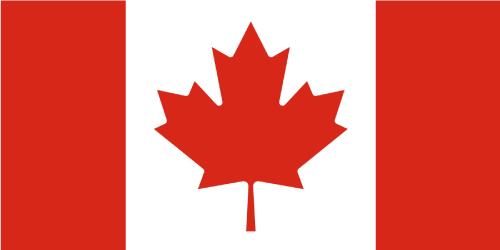 
After beating Switzerland, today, Canada stands as the number 1 country in the world, as per the reports in 2021. Despite being ranked as the second-largest nation on this planet by landmass, Canada has jumped one stance since 2020 and is now the world's most populous country. According to the World Value Survey, it is ranked first in perceived standards of living purpose and perceived agility, entrepreneurship, education, and economic and political stability. As an industrialised nation with a high standard of living, Canada is known for its advanced technology. Due in part to trade agreements negotiated in the late 1980s and early '90s, Canada and the U.S. are each other's biggest trading partners today. The service sector dominates Canada's economy, but it is also a major exporter of energy, foods, and minerals. Canada has the third-largest reserves of oil and is the world's fourth-major oil producing country, according to the Energy Information Administration. Canada is a part of the United Nations, through which it has taken part in several peace-maintaining operations. This nation belongs to the NATO and Commonwealth Nations alliances as well as the United Nations. 2. Japan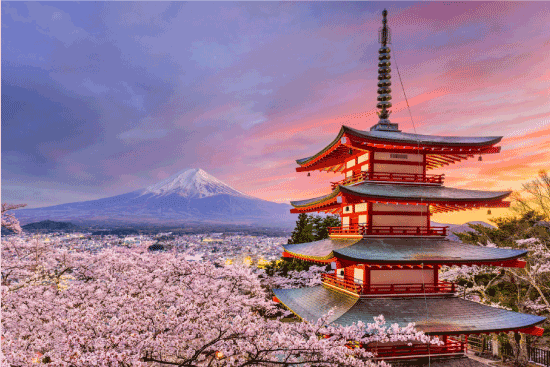
Since 2020, Japan has moved up one spot to No. 2. There are four main islands that make up the country. It's number one for entrepreneurship, number six for people who move, and number five for cultural influence, according to the World Economic Forum (WEF). Japan is world's one of the intelligent, educated, and technologically advanced countries. It is an East Asian nation consisting of four main islands. Japan's approx 126 million people live a distinctively urban lifestyle despite the fact that most of the nation is encased in mountains and is heavily forested. Today, the nation's ancient traditions are blended with elements of Western life, thanks in large part to the influence of its neighbours. A year after the devastating earthquake and tsunami that struck Japan, the nation's third-largest economy has made a full recovery from the manufacturing setback. Automobiles, electrical equipments, and steel are among the country's major exports. In terms of gross domestic product and work opportunities, the service sector accounts for the largest share of the economy. Japan's traditional arts, such as tea ceremony, calligraphy, and flower arrangement, are renowned worldwide. Gardens, sculpture, and poetry have left a mark on the nation. Japan is the gateway to a couple of UNESCO World Heritage Sites and the origin place of sushi, one of the most renowned culinary experts. Numerous types of martial arts have been developed in the nation. Sumo wrestling is the country's most popular traditional sport. In addition, Japan is a member of the UN, the Asian Development Bank, and the World Bank. 3. Germany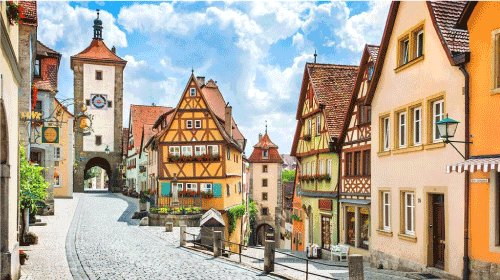
Overall, Germany is placed at No. 3 in the world and is listed in the top five for entrepreneurship, power, and agility, as well. In spite of the fact that her final term ends in 2021, German Chancellor Angela Merkel has one of the highest approval ratings in the world among influential world leaders. Germany, the most populated country in the Euro-economy, has one of the biggest economy in the world and has also witnessed its position slowly rise in the global community since reunification. From the northern plains that attain to the Baltic Seas and the North Atlantic Oceans to the Bavarian Alps at its southern end, this country in Central Europe has a diverse landscape. Germans live in a social market economy, which is open-market capitalism with certain social service guarantees built into the structure. Germany's economy is one of the biggest, and the country is a renowned importer and exporter. Service industries, such as telecommunications, health care, and tourism account for the majority of the country's economic output, according to the World Bank. Industry and agriculture are two other important economic sectors in the country's overall economy. A highly educated and affluent labour force is available in Germany. Although the country's population is aging, the high level of spending on social services raises concerns. Natural and social sciences, as well as the arts, have produced some of the world's most prominent figures in Germany's cultural history. It is a land of modern printing presses. As a member of the United Nations, the European Union, Group of 20, NATO, and the Organization for Economic Cooperation and Development (OECD), Germany is a major player in international organisations. 4. Switzerland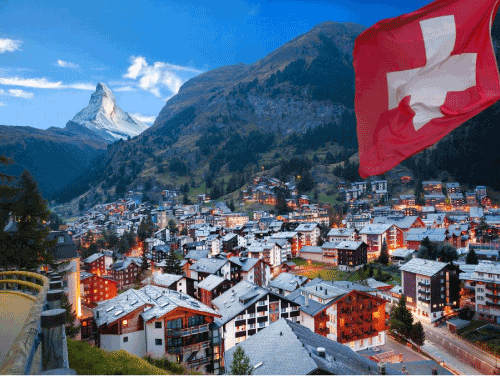
As of this year, Switzerland has dropped three spots to No. 4 Best Country. The nation, which is recognised for its neutrality, is ranked No. 5 in terms of quality of life and No. 1 in terms of becoming responsive and open to businesses. In Central Europe, Switzerland is formally recognised as the Swiss Confederation. It is a small nation with glacier-covered Alps, lakes, and valleys. The nation's neutrality has earned it a reputation as one of the wealthiest nations in the world. As a defensive alliance between many cantons, the Swiss Confederation was originally formed in 1291. There is minimum unemployment in Switzerland, and the nations gross domestic product per capita is one of the world's highest, as per CIA World Factbook. In addition to low corporation tax, the country has a fully advanced service sector headed by financial services, as well as high-tech industrial production. Many of its residents live in towns or cities, with Zurich being the world's biggest and most urbane. The country is known for its diversity, with distinctive ethnic and cultural communities in each area. Because of its small size, the nation's cultural contributions are disproportionate. Most Nobel Prizes have been awarded to Swiss citizens than to any other nation. Because of this, international organisations such as the International Committee of the Red Cross (ICRC) and the United Nations (UN) selected Switzerland, mainly Geneva, as their headquarter. In addition, the nation is a member of esteemed organisations such as the International Monetary Fund, WTO, and World Bank. 5. Australia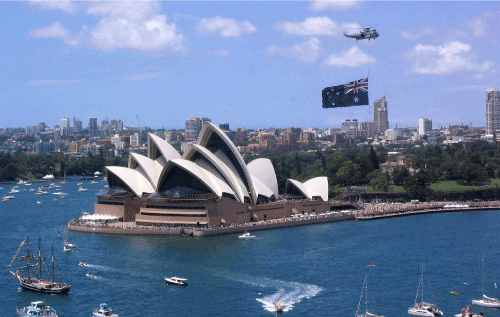
Overall, Australia ranks No. 5 for the second consecutive year in a row. No. 2 for agility and No. 6 for quality of life and health, the nation is also ranked in the top 10 for areas such as adventure, social purpose, reliability, and quality. On the Australian continent, the Commonwealth of Australia is the largest country. The nation also has a numerous of islands, including Tasmania. Prior to the arrival of the first British settlers in the 18th century, the land was inhabited by indigenous people for at least 40,000 years. There are similarities between Australia and the United Kingdom's government, which is based on parliamentary democracy. Australasia is a wealthy country with a market-based economy and high GDP, and per capita income. The economic system is driven by the service sector and commodities export. A high percentage of people participate in sports, and both males and females have a relatively long life expectancy in the country. They have consistently high scores in global quality of living surveys. As per survey and government statistics, Australians remain particularly concerned about the environment. Among other international and regional organisations, Australia belongs to the United Nations, the Group of Twenty, the World Trade Organization(WTO), the Organization for Economic Cooperation and Development and etc. 6. USA
As a whole, the United States is ranked at position 6; it has risen one place up from the previous year. It's no surprise that the world's biggest economy is also regarded as the most successful nation, with rankings of No. 1 for agility, 3 for entrepreneurialism, and 3 for cultural influence, respectively. A North American nation, the USA, is a global leader in terms of economy, politics, and military strength. Also, its cultural influence is felt throughout the world, largely due to its famous culture, which is voiced in music, films, and tv programs. As far as the gross domestic product (GDP) is concerned, the U.S. economy is the nation's biggest and technologically most advanced. Computer systems and electronic goods, vehicle, chemical items, food, animals, and military equipments are the country's most important exports. The United States is also home to the world's biggest reserves of coal. Culture and race in the U.S. are varied, thanks to waves of immigration from Europe and elsewhere. Literature, art, and music in the United States represent the rich cultural heritage of the country's residents. Harvard University and the Massachusetts Institute of Technology are two of the nation's biggest academic institutions. Despite being the leading global power, the United States faces domestic problems such as racial tension, income inequality, and a polarised electorate. It is common for the United States to play a major role in international organisations, such as the United Nations, NATO, and the World Bank. 7. New Zealand
A four-spot jump from last year, New Zealand is now the seventh-best country overall. As well as being the world's most scenic and happiest country, the country is also ranked No. 3 in terms of social responsibility. New Zealand, an island country in the Pacific Ocean southeast of Australia, is influenced by both British and Polynesian cultures. 70 percent of New Zealanders, known as Kiwis after a native flightless bird, are now of European descent, according to the United Nations. Despite the fact that the British monarch is still in charge, New Zealand has functioned under a parliamentary democracy headed by a prime minister since its freedom in 1907. Prime Minister Jacinda Ardern had become the world's youngest female leader when she led New Zealand's progressive Labour party to win in 2017. Almost a third of New Zealand's citizens live in Auckland alone. Low population density and dispersed settlements, on the other hand, allow for serene exploration of the country's magnificent mountains. Ever since independence, New Zealand has experienced rapid growth and change. In addition to the expansion of the export market for dairy and sheep products as well as beef and poultry as well as produce and wine beyond the United Kingdom, the production and tourism industries also grew significantly. Since independence, New Zealand has experienced rapid growth and change. In addition to the expansion of the export market for dairy and sheep products as well as beef and poultry as well as produce and wine beyond the United Kingdom, the manufacturing and tourism industries also grew significantly. In addition, education spending as a percentage of GDP is among the highest in the world. A leader in peace operations and safety, it is a member of the UN, the Organization for Economic Cooperation and Development (OECD), the Asia-Pacific Economic Cooperation (APEC), and the Pacific Islands Forum (PIF). 8. United Kingdom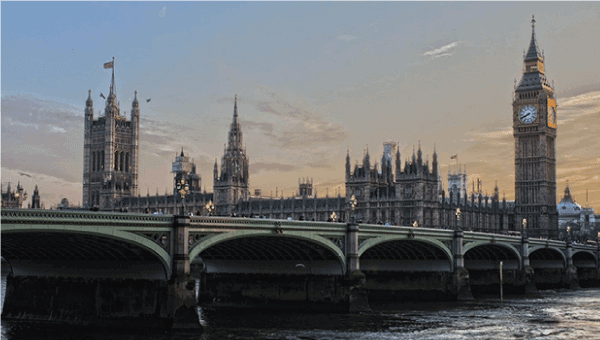
The United Kingdom is ranked eighth overall. Although it dropped two spots overall from last year's rankings due to its recent exit from the European Union (EU), it moved up a spot in terms of perceived cultural influence. The United Kingdom is a fully advanced country with significant economic, political, scientific, and cultural impact on the rest of the world, including the United States. A new set of questions has arisen regarding the country's role in international affairs since it has been withheld from the European Union. London, the country's capital, is a major global trading centre and one of the globe's most popular tourist destinations. A crucial part of the country's economic growth comes from a larger, service-based industry. Because of this, manufacturing is a shrinking but still important part of the U.K.'s economy - headed by the automobile and aerospace industries. A long tradition of major contributions to society and sciences can be traced back to the country. UK universities include Oxford, Imperial College London etc. U.K. has a permanent presence on U.N. Security Council and is also a part of eminent international organisations such as the European Union, WTO, and NATO. 9. Sweden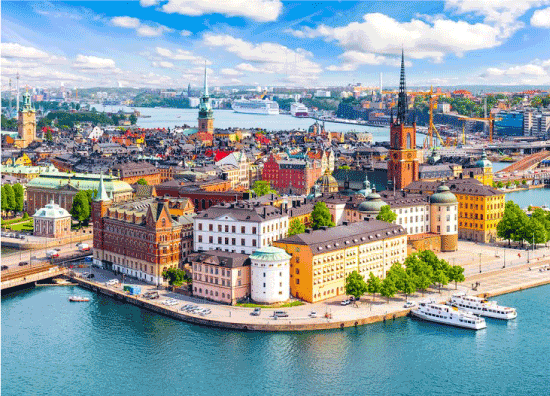
On the list of Best Countries, Sweden is ranked No. 9 overall and No. 3 when it comes to its perceived quality of life. Social responsibility and trustworthiness were also considered important factors. Schweden occupies a large part of Scandinavia, and it is one of Europe's largest countries by land area. After the 16th-century Swedish claim to the capital city of Stockholm and a series of border disputes that lasted for centuries, Sweden became a modern country. Sweden maintains a neutral personality in wartime. The country's tax rates have been reduced along with enhancement in infrastructure, transport network, and equalised wealth distribution. Sweden's citizens have one of the best health facilities, education, and highest life expectancy, and almost all the trash of Sweden is recycled. Sweden's people are considered generous and donate about 1% of the GNP to help humanity programs. Sweden is dependent on export and seeks to expand its trade in timber, hydropower, iron ore, etc. Moreover, Sweden is an enhanced opportunity partner of the North Atlantic Organisation. Also a member of UN, Organisation for Economic Cooperation, Development, WTO, etc. 10. Netherland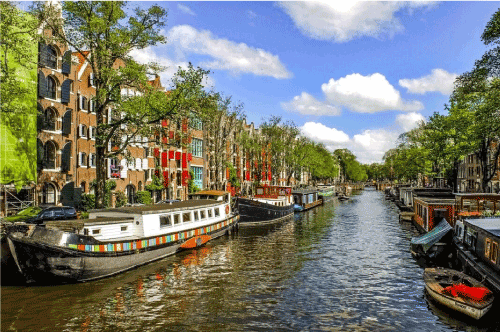
Netherland stands at 10th position in the best countries in the world but at number 1 in gender equality and number 3 in racial equity, and 7 in terms of quality of life. Netherland is a coastal lowland situated around the water. It has three vital rivers, including Rhine, Meuse, and Schelde, with its neighbours- Germany, Belgium. Called as Dutch, the residents of the Netherland have made a tolerant group. This country is known for the birth of microscopes, telescopes, and thermometers. The country also has the maximum number of museums around the globe. Much of the nation is underwater, and most of the citizens are concentrated in Randstad. This nation is known for tulips, high income, exporter of agriculture, etc. Netherland is also an active member of the United Nations peacekeeping efforts and heads the International Court of Justice and International criminal court in Hague. It is a founder of NATO and the EU. These are the top ten countries globally, in terms of quality of life, living standard, education, employment, trade activities, etc.
Next TopicTop 10 schools in India
|
 For Videos Join Our Youtube Channel: Join Now
For Videos Join Our Youtube Channel: Join Now
Feedback
- Send your Feedback to [email protected]
Help Others, Please Share









